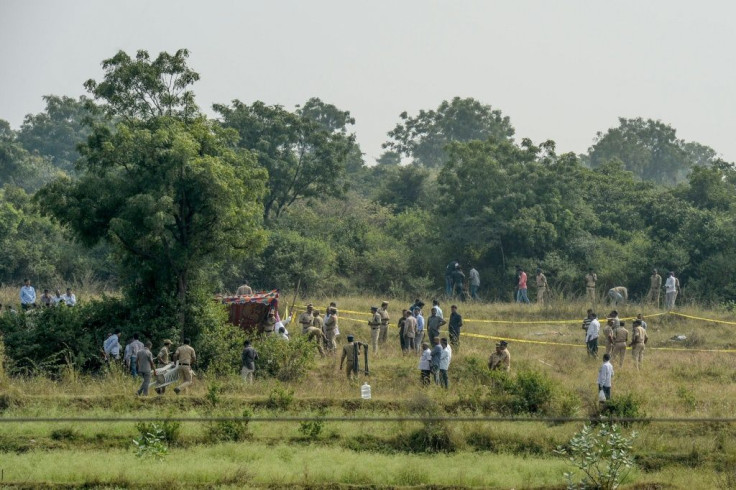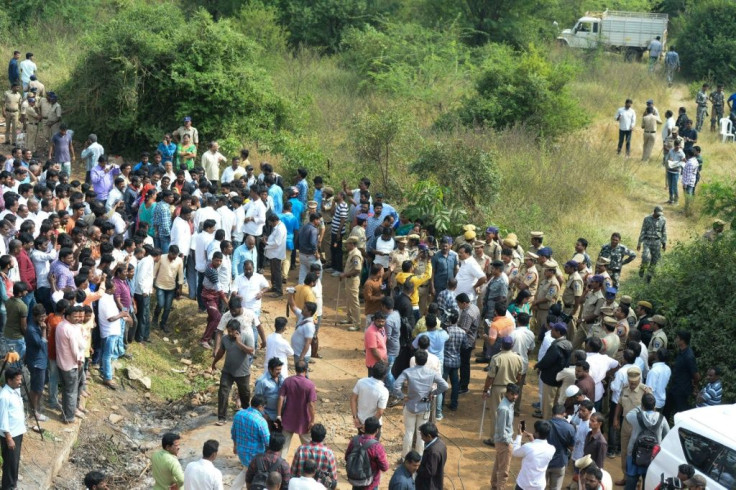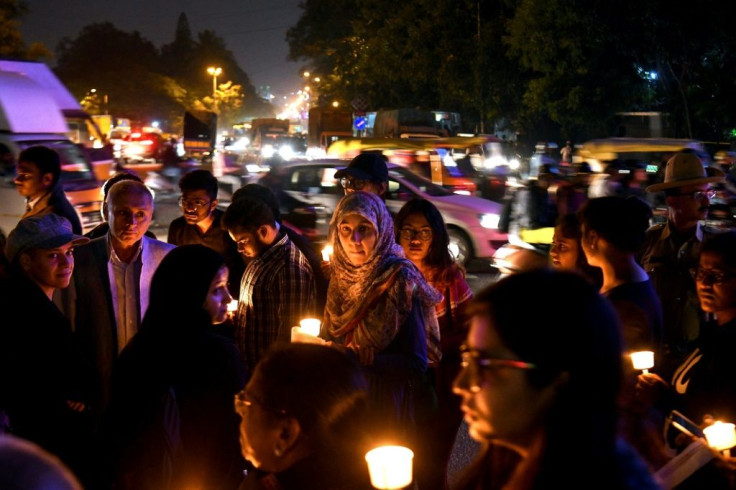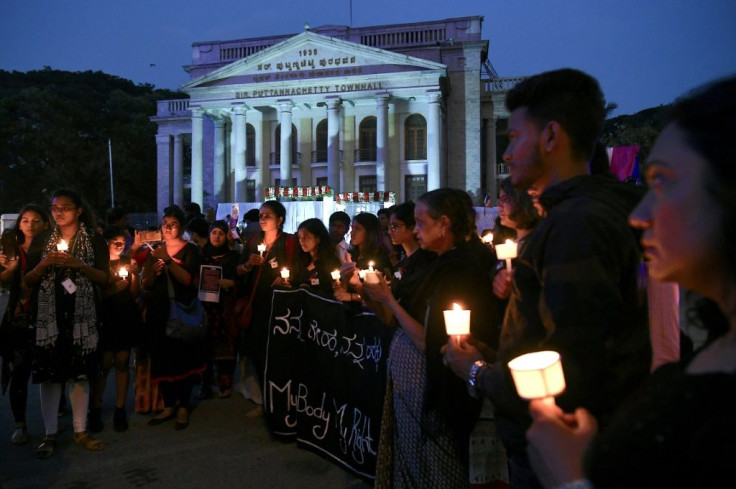Indian Police Investigated Over Killings Of Rape Suspects

A top Indian rights group on Saturday launched an investigation into the police shooting of four rape-murder suspects after accusations they were gunned down in cold blood to assuage public anger.
But in a country where violence against women is rife and an overburdened criminal justice system means attackers often escape punishment, many Indians also celebrated the suspects' deaths.
The launch of the investigation by the National Human Rights Commission comes as India also reeled from the death of another woman on Friday, set on fire on her way to a sexual assault court hearing in the northern state of Uttar Pradesh.
The gang-rape and murder of the 27-year-old vet last week outside the southern tech capital of Hyderabad had prompted nationwide protests and calls for swift and tough justice, with one lawmaker calling for them to be "lynched".
Police said that they shot the four suspects, who had been in custody for a week, early Friday after they snatched officers' guns during a night-time re-enactment at the crime scene organised by detectives.
Their deaths were met with celebrations, with hundreds heading to the scene and showering officers with flower petals, as politicians, celebrities and sports stars congratulated police on social media.
However, others expressed horror, with one Supreme Court lawyer calling it "murder in cold blood" and Amnesty International saying the "alleged extrajudicial execution" should be investigated.

The Indian Express said in its Saturday editorial that the shooting of the four suspects "reflects an idea of medieval mob justice."
Police are often accused of using extrajudicial killings to bypass the legal process to cover-up botched investigations or to pacify public anger.
More than 33,000 rapes were reported in India in 2017, according to the latest government figures, but vast numbers go unreported, experts say.

At the same time, a huge backlog of cases that many victims wait years for their attackers to be convicted, and that many perpetrators escape justice.
The reconstruction at the crime scene where the suspects were shot was overseen by a police officer involved in two similar incidents, including when three acid attack suspects were killed in a forest in 2008, the Indian Express reported Saturday.

A team from the National Human Rights Commission arrived at the scene on Saturday afternoon having first visited the morgue where the bodies were held.
The Commission said that it was concerned that the killings would "send a wrong message to society."
The police have been ordered the bodies to be preserved until Monday evening and that their autopsies be filmed.
The four men had, according to police, confessed during interrogation to gang-raping and murdering the woman before setting fire to her body under a bridge.
The Indian Express editorial slammed the country's political class, accusing them of "choosing to whip up a toxic primal anger that never lies too far beneath this grossly unequal society. They are choosing to not just cheer, but lead the bloodthirsty mob."
Veteran politician Kapil Sibal warned that "savage Taliban-style justice... will make courts irrelevant."
But the murdered woman's father said "justice was done".
Separately on Friday, a woman who had been set on fire on Thursday by men she had accused of raping her succumbed to her injuries in the northern state of Uttar Pradesh.
The victim, who suffered 90-percent burns, told police that she was attacked by two men who had raped her, assisted by three others on her way to a court hearing.
Local politicians were heckled as they visited the 23-year-old woman's home village on Saturday, reports said.
In another incident, police in southern India's Kerala state Saturday said that one of four men accused, but later acquitted, over the deaths of two girls in 2017 was beaten by an angry mob.
Following an outcry over the acquittals in the case, which saw two girls aged 13 and nine hang themselves after being sexually abused, the local government has filed an appeal.
© Copyright AFP 2024. All rights reserved.




















